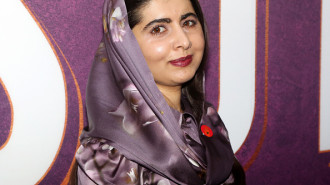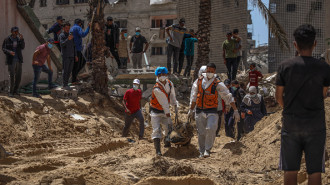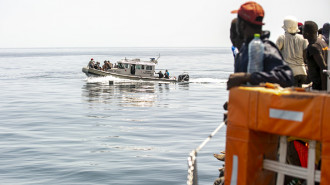Children as young as 12 held in northeast Syria's adult prisons, says ICRC representative
Hundreds of children, as young as 12-years-old, are being held in adult prisons in northeast Syria, a senior representative of the International Committee for the Red Cross (ICRC) said on Wednesday.
At a briefing on the humanitarian situation of stranded and detained people in northeast Syria, Fabrizio Carboni, the ICRC's Near and Middle East regional director, spoke of a "deepening" child protection crisis in the area.
"There, tens of thousands of children are stranded in camps, in appalling conditions no child should experience. And hundreds of children - mostly boys, some as young as 12 - are detained in adult prisons, places they simply do not belong," Carboni said.
"These children are Syrian, Iraqi and from dozens of other countries. Some are with their family members, some are orphaned or separated from loved ones. All must be treated first and foremost as victims."
Around 40,000 children, whose parents were linked to the Islamic State group, are being held in camps and prisons in northeast Syria.
Conditions at the camps are described by human rights organisations as "inhuman and degrading", while prisoners allegedly endure torture and unsanitary conditions.
Local officials say they fear that a new generation of IS militants is being created using teenagers at the camps and that they are overwhelmed with the numbers of people held in the camps and prisons.
Syrian-Kurdish authorities have called on foreign countries to repatriate their citizens, although many European countries have so far resisted.
Human rights organisations, the US, and the UN have also called for IS-linked foreign nationals to be taken home, with the children rehabilitated and the adults tried for their crimes.
While women and girls are often described as the most vulnerable in the camps, Carboni said that "boys in particular live in a state of constant fear and mistrust".
"Once they reach a certain age, many are separated from their families and transferred to adult places of detention, which are no place for children," he said.



